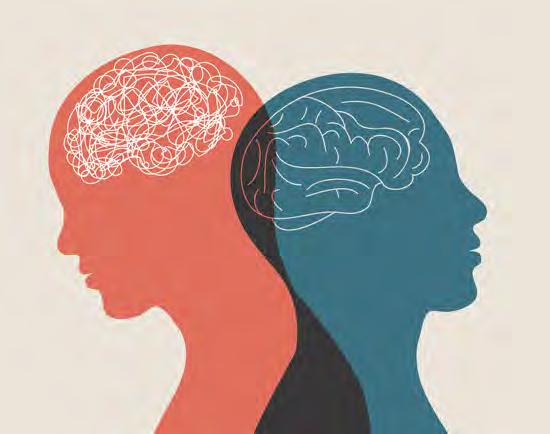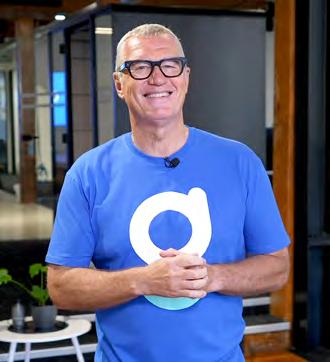
3 minute read
Maintaining mental health should be part of your day job
Maintaining mental wellbeing should be part of your day job
As surgeons, you know what it’s like to save someone’s life, but it’s a feeling most people will never experience. Sir John Kirwan has though, and it’s what drives him to put his head above the parapet to talk about the taboo of mental illness.
Advertisement
The All Blacks legend has ascended to near national treasure status over the past 15 years when he swapped the oval ball for the microphone to share his struggles with anxiety and depression and to promote mental wellbeing. Sir John, or JK as he prefers to be called, played 63 test matches for Aotearoa New Zealand from 1984 until 1994. He made a major contribution to the All Blacks’ 23-test unbeaten run from 1987 to 1990, and to its 1987 World Cup victory. He switched codes for a time in his early 30s to be a top scorer for the Auckland Warriors rugby league club but returned to rugby union, later becoming a coach for the Auckland Blues and the national teams of Italy and Japan. For his services to rugby, JK was appointed a Member of the Order of the British Empire in 1989. It has been his work to raise awareness of mental health however that promoted him to an Officer of the New Zealand Order of Merit in 2007 and contributed to his later Knighthood in 2012. As a poster-boy for Kiwi macho maleness, it was no easy thing for JK to go public about his mental health struggles. “I thought it would ruin my career.” However, he recognised that with his public profile he had the power to help others. “I was [feeling] so bad, I wouldn’t wish it on my worst enemy. I realised that even if I could help just one person it was worth it.” It didn’t take long for his efforts to be rewarded.
“I was at a rugby game and this guy came up to me and said: ‘JK, you saved my life.’” Since then, he has written two books about his depression—All Blacks Don’t Cry and Stand by Me—and has established the Sir John Kirwan Foundation (https:// bit.ly/3RNNMZt) to help young people understand mental health. In 2020, he launched the mental wellbeing app Groov (https://bit.ly/3RIPlI9) formerly Mentemia. RACS was one of the first to sign on to Groov, a workplace wellbeing platform. JK says businesses both have a responsibility and are in a strong position to affect change. He points out they have a lot to gain by supporting good mental health in terms of productivity, sick leave and staff turnover. In the latest RACS staff engagement survey, 80 per cent of the staff said their manager cared about their wellbeing. The Groov app can be customised depending on a staff member’s preferences and provides key insights and articles the RACS People and Culture team can share more broadly across the organisation. JK often uses humour to get his messages across, for example playing up to the Jafa stereotype (you might need to ask your Kiwi colleagues what this means but think stuck up Aucklander) to encourage people to let down their defenses. He also puts people at ease by reminding them their mental health issues don’t define them. “Mental health is just one part of you. Yes, it affects many other parts of your life, including your work and relationships, but it’s not everything about you. You are your values, not your emotions.”
What’s the best way to improve mental wellbeing? In JK’s words, “To go from surviving to thriving,” he says. It’s about finding what works for you and doing it, every day. “Create a daily mental health plan and put it first. Deal with your stress and anxiety every day.” JK is a self-described “active relaxer” and finds cooking, reading, and practice playing the guitar—something he took up during the first COVID-19 lockdown and which he plays “like a strangled cat”— are great at keeping the black dog at bay. Even now, JK says he still has off-days. That’s when it’s time to recharge his “triple A battery” and “acknowledge” how he’s feeling, “accept” it, and “act”, where possible, to turn the negative feelings around. Taking action to stay mentally healthy is a favourite theme of JK’s. He doesn’t believe you can wait for others, or for fate, to solve your problems.
“If it’s meant to be it’s up to me.”











